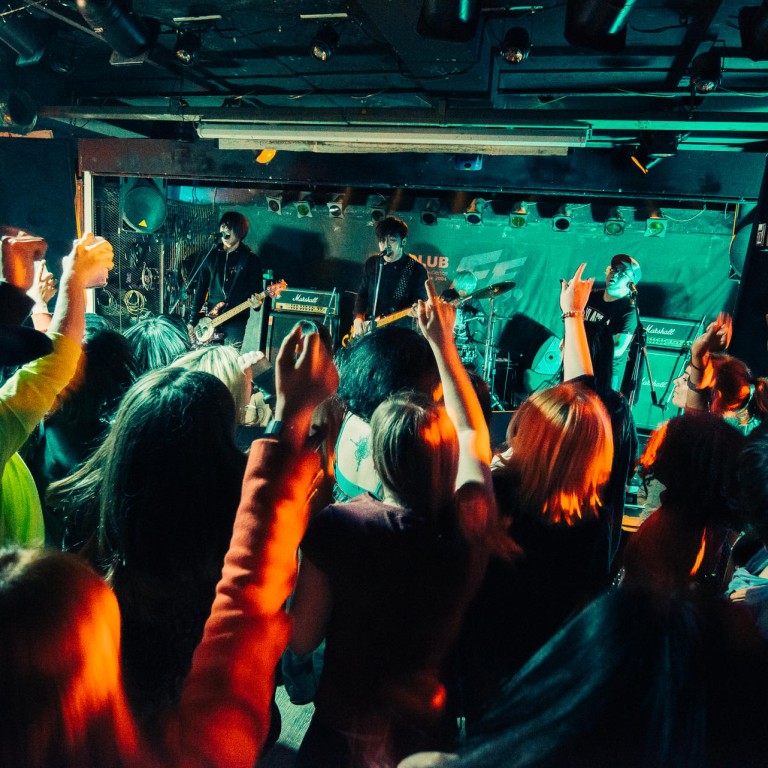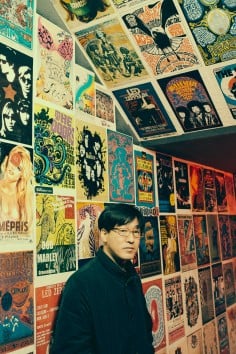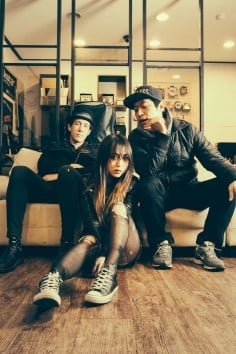
Korea's indie rock music survives in shadow of K-Pop
Indie music in South Korea is coming out of the shadow of K-pop in Seoul's Hongdae district, writes Crystal Tai
It's Saturday night in Hongdae, one of Seoul's best-known entertainment districts. Alleyways that are quiet by day have transformed into bustling passageways lined with busy bars and restaurants; street food vendors have pitched tents to serve soju and fried seafood; and young men and women prowl the streets in their nightclub finery.
With so much action going on, it's easy to miss the entrance to Club Freebird, an obscure but influential music venue in the area. Inside the bar, surrounded by the blue haze of stage lights, a small crowd sways to Led Zeppelin-inspired guitars and the siren-like vocals of a singer in black eyeliner, fishnet tights and shorts.
I want to showcase real music in Korea that can make you feel. Music that touches your heart
Apart from the cheap drinks, every member of the audience is here to enjoy something that South Korea isn't known for: indie music.
"I don't really care for K-pop," says Skyler Jeong, Club Freebird's founder. "It's so omnipresent in our daily lives it's become unavoidable. But the world doesn't know there is more to music in Korea. That's why I am promoting indie bands through my venue."
Despite his conservative dressing, Jeong is a devoted fan of rock music, and his love of the sound is what drove him to open his club. "It was mainly Brit-rock back then," he says. The former composer set up Freebird more than two decades ago, before Hongdae became what it is today. The club is still a popular underground venue, with a studio and rehearsal space for bands. "I didn't play in a band, but I wanted to create a space that I could share with bands I liked," he says. "Now I do producing work for many of them, and it's very easy to meet the bands I want to work with."

Hongdae was founded upon anarchist values, says Mark Russell, an expert on Korean pop culture and author of "Back in the early 1980s, under the military government of [then-president] Chun Doo-hwan, it was a really tough time politically," he says.
"The government was cracking down on left-wing publishers in Chungmuro [a cultural and intellectual district in Seoul]. Chun kicked out all the firms he didn't like.
"Many of them relocated to the Hongdae area [and] that created a real foundation for counter-culture. So between the fine arts students and the publishers, there became a real concentration of 'oddballs'."
Soon after South Korea's democratisation, and by the time Seoul hosted the nation's first Olympics in 1988, Korean society began to open up economically as well as culturally. "You then had this generation of kids in Hongdae acting on these odd [cross-cultural] ideas and they started opening clubs and bars," says Russell. By the mid-1990s, Hongdae's music scene was in full bloom.
Punk rock was the first to gain a foothold in Hongdae, but it is ska-influenced bands such as Crying Nut and No Brain - acts that arrived on the scene in 1995 and 1996 respectively - who are credited as the "godfathers" of the indie scene. Venues such as Drug and Blue Devil - which have since merged to become DGBD, no doubt a play on New York's now-defunct CBGB - were instrumental in launching the careers of countless musicians.

Since the turn of the millennium, as more live clubs opened in Hongdae, nightclubs, bars and restaurants also began to pop up, bringing in a young demographic. But despite all its development and commercialisation, Hongdae's indie spirit lives on.
Club FF is one of the more "recent" additions, having opened in 2003. "In the 1980s, there were more live bands playing in bars," says manager Eddie Hwang, dressed in a leather jacket and Alexander McQueen print scarf. "Nowadays, hosting a live band can be more expensive than a DJ, so a lot of places opt out."
The Beatniks are up-and-comers who perform at many of the venues in the area. Quiet and unassuming, the baby-faced band members are aged between 21 and 24, and all are music students, with the exception of vocalist Han Yoo, an economics student. "We have a good scene here. There's a lot of music and talent. Everyone who likes indie music will automatically come to Hongdae these days," says Yoo.
Combining nostalgia and electro-rock sensibilities, their music suggests a darker version of Australian electronic band Cut Copy. The Beatniks formed nine months ago, but already have an impressive list of well-produced tracks. With Yoo's expressive vocals, stage presence and poise and his energetic bandmates, the group are an impressive live act.
Another group that have received much underground publicity are the Wasted Johnny's, the female-fronted rock band playing Club Freebird. "We play blues rock with a 'rockified', courageous edge," says vocalist and guitarist Angie Won. Responsible for tracks such as and , Won is known for her explosive 1980s metal-inspired guitar solos. The band got together through the Hongdae community. "I was looking for a bassist and had posted leaflets all around Hongdae," says Won. "Later, a friend saw them and connected me with Nils Germain, our bassist."
Belgium-born Germain is one of a growing number of expats playing in local indie bands. Such bands have been on the rise, especially since the mainstream prominence of Busker Busker, a Hongdae-formed trio consisting of a Korean frontman and guitarist, a Korean bassist and an American drummer. The group were one of the rare indie acts to rise to fame after competing on a K-pop reality TV show. But this success for the quirky group did not come without sacrifices. They underwent makeovers and Botox injections to replace their geek-chic look with a streamlined pop aesthetic, and appeared in high-production advertisements that cemented their celebrity status.
But Russell says Busker Busker can't be faulted for this. "If you look at TV ads in Korea, 85 per cent of them use celebrity endorsements. The way bands make money is through [those] ads, [as well as] drama or movie soundtracks, and playing at corporate events. It's a way to 'graduate' from Hongdae."
"We were approached by a major record label but we weren't prepared for that yet," says Yoo of The Beatniks. "We don't have a specific image or fully formed identity, and going for that would mean a lot of responsibility."
Asked for his thoughts on the monolithic K-pop industry, Yoo says: "It isn't bad music - it's just music that was created by a system. We actually like it, but we don't want to play that kind of music. I think you can achieve a smaller level of success and still be happy."
Club Freebird's Jeong adds: "At the moment, we are going through 'indie-mania'. People are looking for that special something, music executives have been coming to my club to scout for new sounds because there's not a lot of unique music in Korea. Every week, more than 30 bands play at Club Freebird."
But regardless of whether bands decide to "graduate" from Hongdae or not, Jeong remains determined to carry on as usual. "I am promoting these bands because I want to showcase real music in Korea that can make you feel. Music that touches your heart."

